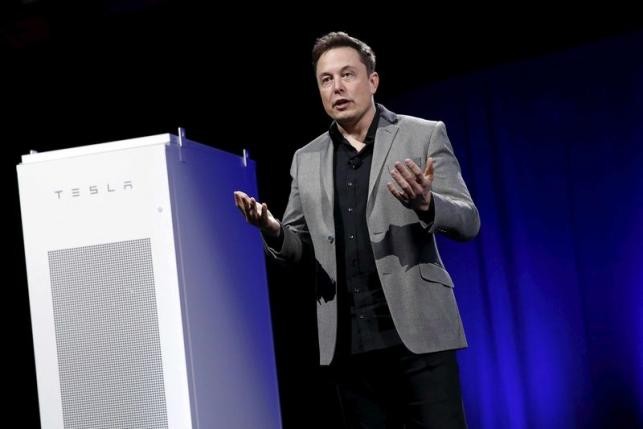U.S. electric car maker Tesla Motors has presented to the public the long-awaited Model 3 at Tesla’s design studio in Hawthorne, California, on Thursday, March 31, with its sight set for the mass market in China. According to analysts, the success of the model is too early to predict.
The company said the starting price for the Model 3 in the U.S. market is $35,000. Market analysts estimated that the car would cost 350,000 yuan ($54,145) in China, including import duties and shipping costs.
The Global Times reported that the pre-orders for the new model had already started in mainland China on Thursday, March 31, while online orders started the following day on April 1.
Elon Musk, Tesla founder and CEO, said during the unveiling that within one day, the global pre-order for the model has surpassed 115,000. In China, a company spokesman declined to disclose details of the pre-orders on Friday.
According to the company, the orders will first be delivered to the U.S. market as production of the car will start in late 2017.
Zhu Xiaotong, head of Tesla in China, said that deliveries to the Chinese market will begin in 2018.
Tesla is aiming to make annual sales of 500,000 units by 2020 and the success of the moderately price Model 3 is crucial to the company, the report said. Market analysts, however, said that predicting the performance of the Tesla model in the Chinese market is still premature.
Zhang Yu, managing director of consultancy Automotive Foresight (Shanghai) Co., expressed doubts about the Model 3's prospects in the mainland as he believed that 350,000 yuan is expensive for consumers.
"The price would be too much for China's mass-market consumers. Affluent consumers may also not be very interested, as the entry-level Model 3 would fail to serve as something that they can show off," Zhang told the Global Times.
Zhang added that another disadvantage is that Tesla is still not subject to government subsidies in the mainland. "The U.S. would still be the Model 3's major market," Zhang noted.
The report, however, said that one of the major selling points for Tesla cars is that owners are exempted from the license plate lottery in Beijing, part of favorable government policies that China granted to Tesla.
"But at the same time this also makes sales of the car very vulnerable to policy changes," Wu Shuocheng, a Shanghai-based independent auto analyst, told the Global Times, adding that a change in policy is yet to be seen before 2018 when the Model 3 is expected to arrive in the mainland.
Wu added that it may be difficult to convince Chinese consumers to buy an electric car like Model 3 as infrastructure and charging technology have not been fully developed in the country.



























